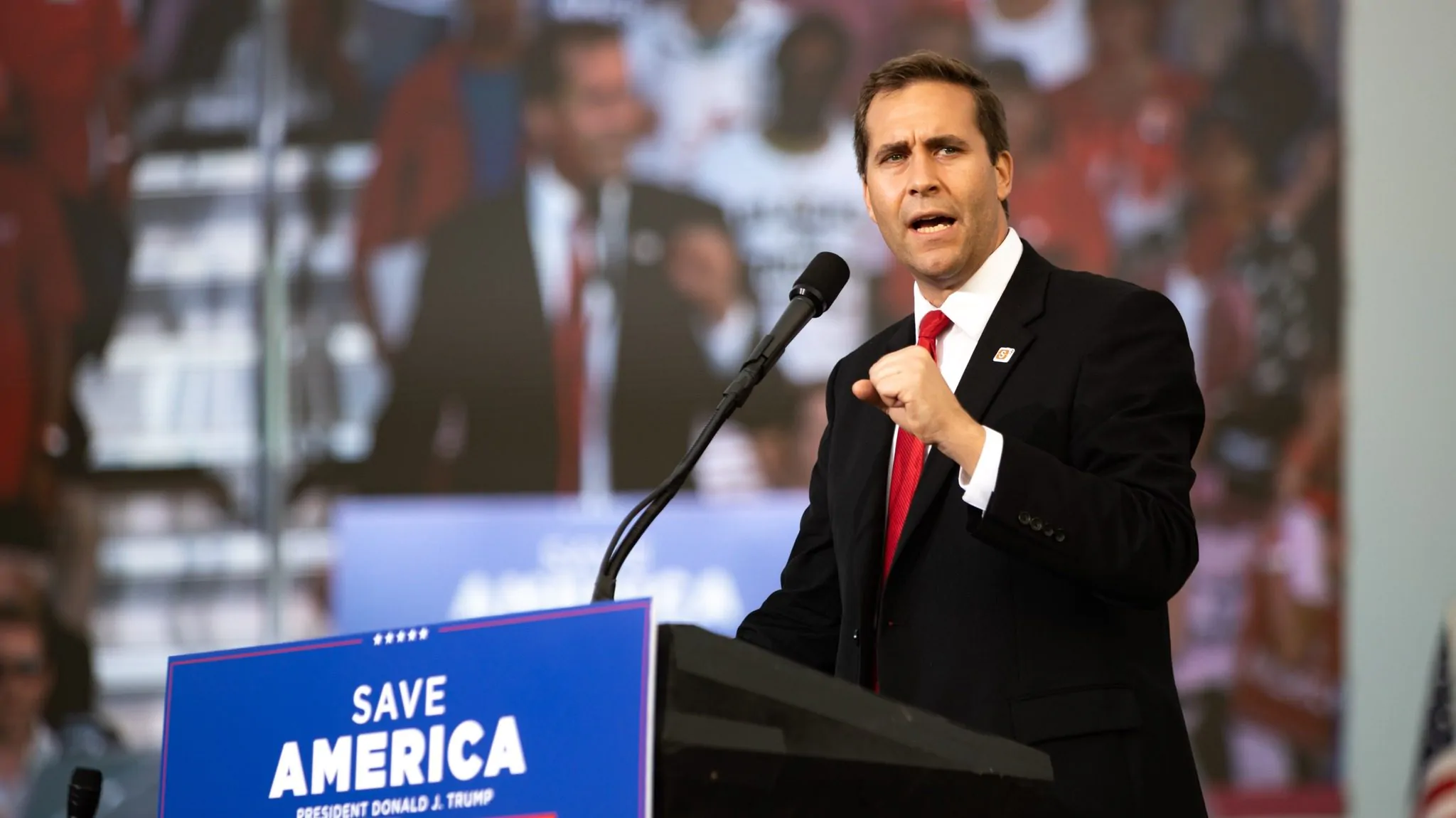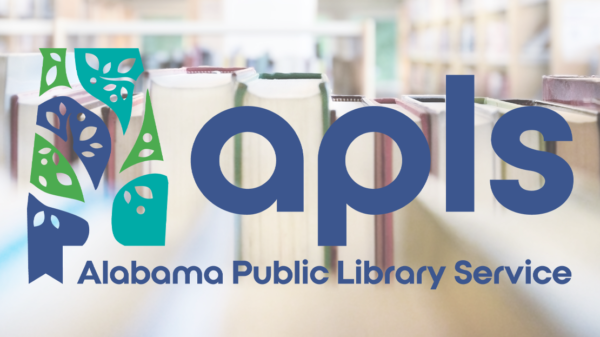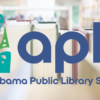Alabama Republic Party Chair John Wahl is now the chairman of the Alabama Public Library Service executive board after a narrow vote Thursday.
Outgoing chairman Ron Snider recommended that Angelia Stokes serve as chair with Jerria Martin to serve as vice chair. Board member Amy Minton countered and made a motion instead to make Wahl chair with Martin as vice chair.
Stokes said prior to the vote that her concern about how it might look for Wahl to serve as the chair of the APLS board while serving as chair of ALGOP, to which Wahl countered that the new role would not give him any additional voting power.
Minton argued that Wahl’s connections with lawmakers could help the agency amid controversy, which has come primarily from Republican lawmakers and citizens.
“The Legislature is sending us a clear signal with (House Bill 4) that they’re going to handle this themselves if we don’t handle it to prevent further cuts,” Minton said. Asked by another board member to clarify, Minton said the APLS board needs to have policies “in place and enforced” in libraries.
The vote came down to Martin after Minton and Debbie Windsor, the two newest appointees of Gov. Kay Ivey, supported making Wahl chair. Martin offered a compromise to name Wahl as chair and Stokes as vice chair, but Snider said the existing motion needed to be dealt with first—Martin chose to approve of Wahl as chair and herself as vice chair.
Wahl told APR after the meeting that he is excited to serve as chair and said he hopes that the board can “move past some of the controversy that we’ve had.”
“We’ve listened to the people of Alabama, we’ve listened to the parents of Alabama with he policy changes going into effect now and I think it’s time we moved on and targeted things that are going to also be productive for the people of Alabama and making sure that our libraries are useful to every citizen.”
Read Freely Alabama, which opposed the APLS code changes, criticized Wahl as an “anti-library extremist” and said he has championed last year’s version of HB4.
“For the past year, Mr. Wahl abused his position as Alabama GOP chair and APLS board member to collude with extremist groups Moms for Liberty and Clean Up Alabama in attacking libraries for books about LGBTQ communities and racial justice, as well as books written by Black and indigenous authors in Alabama,” Read Freely leadership said in a statement Thursday.
Wahl told APR that he has been adamant that the controversy be addressed at the APLS level, and expressed concern about HB4 both during and after the meeting. The bill would allow librarians to be charged with misdemeanors if they fail to move books that patrons deem inappropriate; whether the book is actually in violation of law is something that would likely have to move through the criminal court system. The bill has 50 sponsors in the Alabama House of Representatives.
“I understand the state legislature has the prerogative to step in, but I would hope they would give the board a chance to address issues before they made permanent changes in state law,” Wahl said.
And as far as APLS is concerned, Wahl told APR he thinks the board has addressed the issue with its changes to the requirements for state aid, which require libraries to have policies that prevent obscene and sexually explicit books from being available in sections for minors, as well as other undefined “inappropriate” materials.
While Wahl has been on record opposing budget cuts to the agency, his party voted in February to support the previous version of HB4 that could lead to the arrest of librarians. The version of the bill at the time of that vote could have included felony charges, although lawmakers revised the bill to limit charges to misdemeanors.
Board votes down raise for Pack
The vote on who should serve as the next chair of the APLS board was foreshadowed earlier in the meeting when the members considered its annual performance evaluation of Director Nancy Pack. Board members could rate Pack on a scale of 0-3 and all members submitted evaluations except Wahl. Pack’s evaluation came out to 1.78 and Snider made a motion to approve a one-step increase in pay for Pack, equivalent to about $4,000.
After some debate, Pack said told the board she did not care about whether they gave her the raise, but noted that the agency had initially been slated to face an 18 percent budget cut by lawmakers and that she worked to reduce that to the 9 percent cut that ultimately passed.
Wahl also took some credit for talking to lawmakers and working to reduce the severity of the budget cut, again pointing to his relationships with Republican lawmakers as an advantage of his chairmanship.
Wahl told Pack that it “is nothing personal” and that he may be more “hard-nosed then some,” but believed the director should not get a pay raise on top of an agency-wide two percent COLA raise when the agency faced a budget cut of about $350,000. Minton also expressed her disapproval of granting Pack a raise after the budget cut.
Stokes seconded Snider’s recommendation for the pay increase, and Michelle Hughes voted in favor, leaving just one more vote necessary for Pack’s raise to be approved. A long silence followed in which Snider looked at Martin, who appeared to be on the fence about whether to vote in favor. Martin ultimately said nothing and the motion failed for lack of a majority.
Budget cuts result in loss of programs, positions
Pack explained to the board what the agency is cutting back as it prepares to face a fiscal year with $350,000 less to work with than the year prior. The most significant cut is the elimination of a $150,000 program that loans wifi hotspots to rural libraries that patrons can check out, as they may lack access to broadband.
Board members expressed concern about losing the program and leaving patrons who rely on hotspots in the lurch, and interest in renewing the program if and when funding is available.
The budget cuts also resulted in a loss of a position for operations manager, with the board voting between advertising for the position or a vacancy for assistant director.
Pack said other small cuts were made across the board in areas that should have the agency meeting its new reduced budget.
New state aid requirements disrupt federal grant distribution
The new requirements for state aid caused a complication for the board at a time when it would normally be choosing applicants for competitive LSTA grants.
The agency typically distributes up to $1 million in grants to libraries for special projects depending on their grant applications, with the LSTA committee grading applications on merit. Many of these grants go toward technology and collection development, Pack said, although some libraries put in more creative applications.
But LSTA grants require recipients to meet state aid requirements to be eligible for the federal money, and Pack told the board that only 75 libraries have submitted new policies to the board thus far. Out of those 75 libraries, only 29 have applied for LSTA grants, and some of those applications were rated lower than the typical cutoff score for grants.
So the board faced a dilemma: with a June 30, 2025 deadline to have the LSTA money spent, the APLS board could either distribute the LSTA funds to libraries that were already eligible and had applied, even if their applications were subpar, or not issue competitive grants this year and spend the LSTA money on grants that would benefit the entire state.
Board members grappled with whether there might be time for more libraries to become eligible and still have grants completed in time, which could risk the funds going unspent.
Martin suggested that the LSTA money could be used to provide the hotspots to the rural libraries in lieu of libraries having specific projects funded. The board ultimately voted unanimously to use the LSTA money on statewide grants for 2025 and have Pack develop specifics for the next board meeting.





















































